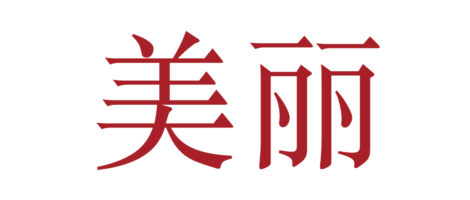
I was saddened to read that “the father of Pinyin” died this weekend in Beijing (though he did live to be 111 years old). While until now I never knew very much about the man himself — who daringly criticized the Chinese government, wrote dozens of books, and was exiled during the Cultural Revolution — I was very familiar with (and grateful for) Pinyin when I began learning Chinese.
Pinyin, a romanized version of the Chinese language — which allows non-native speakers a much, much easier way to learn the language — was adopted by China in 1958, replacing the former Wade-Giles system. (Wade-Giles had been conceived by two British diplomats, and its pronunciation guide was very different and far less accurate — for example, the Wade-Giles word for Beijing is the far-less-accurate Peking.) And, as Zhou’s New York Times obituary notes:
Since then, Pinyin (the name can be translated as “spelled sounds”) has vastly increased literacy throughout the country; eased the classroom agonies of foreigners studying Chinese; afforded the blind a way to read the language in Braille; and, in a development Mr. Zhou could scarcely have foreseen, facilitated the rapid entry of Chinese on computer keyboards and cellphones.
I began to learn Chinese in the early 1990s, before moving to Asia to teach English as a second language. I began in the States with an introductory university class in which we were required to memorize characters, which was insanely difficult. In addition to that, our Chinese teacher was Taiwanese, which meant he used traditional characters as opposed to simplified characters (adopted in mainland China to increase literacy). Here is the word for beautiful in simplified Chinese:
美丽
And here is the same word in traditional Chinese:
美麗
Notice how many more strokes are required in the traditional version. Also note: There is no way for a native English speaker to tell, just by looking at either character, how to pronounce the word. This is where Pinyin comes in. If it weren’t for Pinyin — that is, if I’d had to go by Wade-Giles’ pronunciations — no one I spoke with in Taipei would’ve been able to understand a word of what I said (and it was hard enough as it was; Mandarin Chinese also has four tones for every character, and getting those wrong is all too easy for a foreigner).
Once in Taiwan, I realized I had to focus on spoken Mandarin rather than the written language — most important to survival was learning how to talk. I did have to learn a great many traditional characters, however — this was necessary for everything from eating (in places with written menus, though I ate mostly from food carts) to banking (all transactions on ATMs were in Chinese characters) to finding my way around the country (all of the road signs and bus signs were also in traditional characters).
The language was so different that I learned to “forget English,” as my Chinese tutor taught me; the only way I could grasp the language was to approach it not by translating things in my head but by thinking in Chinese. And this was fascinating…the Chinese language is beautiful, complex, and vast, and when you start to think in Chinese, it’s easier to learn the language, as each character is built from a combination of ideas. To use a simple example, here is the simplified character for the word America:
美国
And here is the traditional character:
美國
It is pronounced Mĕi guó, which is translated as “beautiful country” — as you can see, the first part of the character (美, mei) is from the character above, for beauty.
When I returned from Asia after two years, I was so used to thinking in another, very different, language that I found it hard to put English sentences together; I often spoke in simple sentences, as if I were translating my thoughts from Chinese back into English. It took a long time to sound like a normal native English speaker again.
I reflect on all this as my first book, Forgetting English, is released in its third edition. The title story, while fictional, has many moments — including the one with my Chinese tutor — inspired by my time in Asia.
It’s been especially enlightening to reflect on the extraordinary life of Zhou Youguang; as you’ll read in his obituary, he was so much more than the father of Pinyin. Sent to a labor camp during the Cultural Revolution, he remained an open critic of Chinese communism. His many accomplishments include overseeing the translation of the Encyclopedia Britannica into Chinese, and he wrote more than 40 books (some of them banned in China), at least 10 of them published after he turned 100 — truly inspiring.

